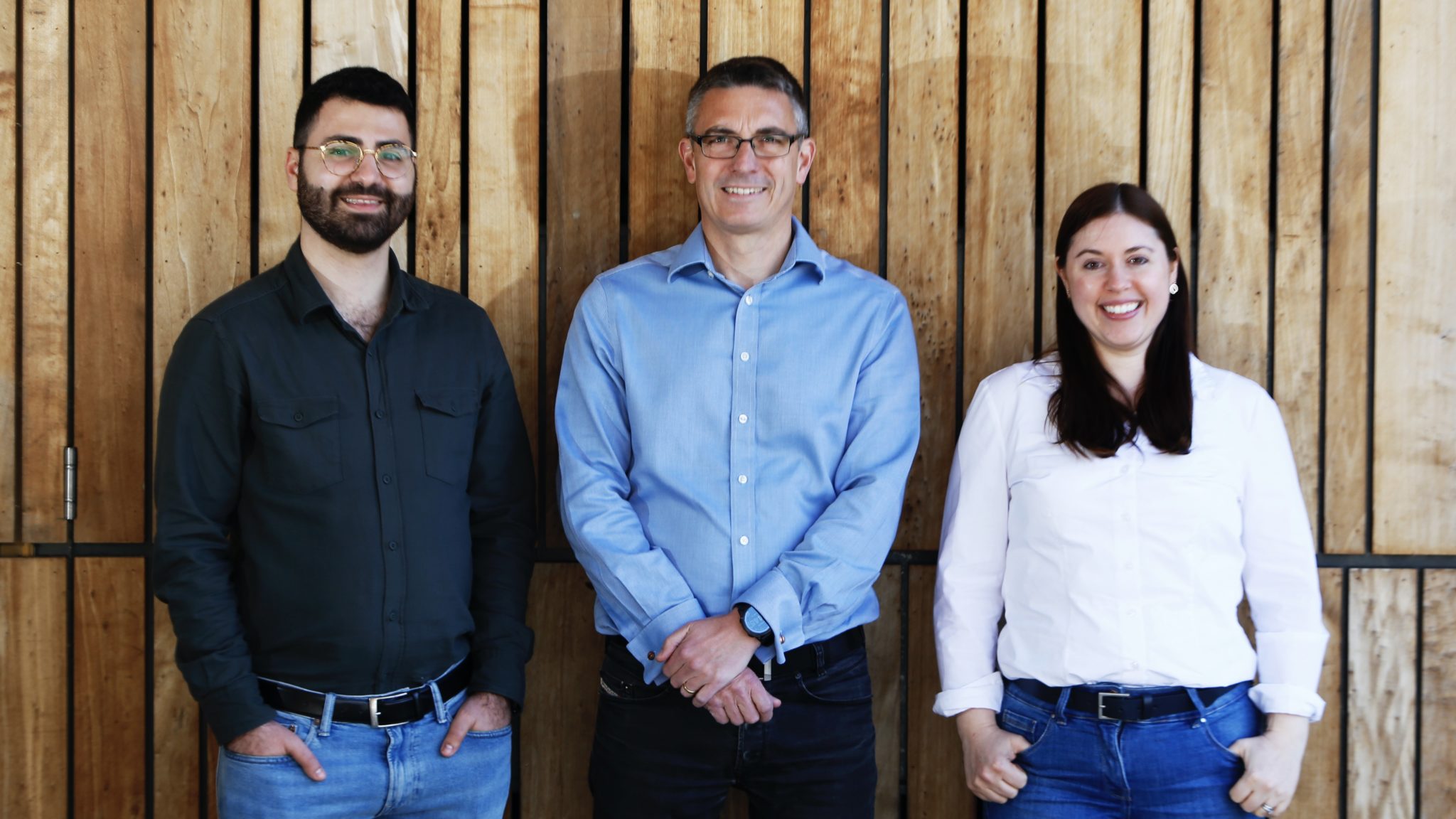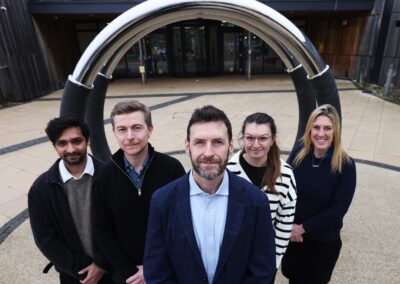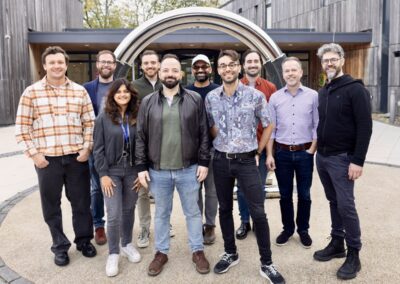We recently sat down with Alex Batchelor, CEO of PicturaBio who told us all about their exciting work to bring a groundbreaking new way of diagnostic testing to market. The business aims to commercialise a novel approach to detecting pathogens by the unique light signature they emit when made fluorescent. The business is based on pioneering research by Associate Professor Nicole Robb and Dr Nicolas Shiaelis, which was conducted at the University of Oxford Department of Physics.
PicturaBio’s imaging technology uses artificial intelligence (AI) to detect viruses, bacteria and other pathogens behind a wide range of infectious illnesses for use in primary care settings and beyond. Rather than test for each possible infection individually, their system will take one sample from a patient and reveal if it finds any pathogen known to cause an infectious disease.
Speeding up diagnostic testing
What makes the business so innovative is the speed in which results can be shared. A result is available within one to two minutes, allowing a healthcare professional to immediately offer the most appropriate treatment. This is important because waiting for results is not only time-consuming, but it also means the patient is no longer in front of a doctor, so the chance to intervene early is lost. Reducing the need for follow-up appointments supports greater efficiency and cuts costs as well as improving patient outcomes.
Alex says “The positive impact of getting a result from a diagnostic test within one minute and being treated immediately is good for patients because they get reassurance of the infection and they get prescribed the correct medication. It’s good for doctors because they can make an informed treatment decision with no need to follow up. And it’s good for healthcare systems because it keeps people out of the hospital if you treat them rapidly in primary care”.
One test for all pathogens
The test relies on a fluorescent label which, unlike conventional tests, is not designed to cause a chemical reaction to reveal that a specific pathogen is present. It instead causes all pathogens in a sample to glow when a light is shone at them. Each reacts differently, creating a unique light signature, a little like a fingerprint.
PicturaBio’s CEO, Alex Batchelor, explains: “Most tests are like baiting a line for a particular fish, you have to use a reagent for each pathogen you want to test for, so it’s expensive and time-consuming. A doctor must have a very good idea of what they need to look for or run several different tests to cover different infections. If they’re right, they tend to find out when the patient is no longer in front of them. We don’t need to look for a specific pathogen, the system knows what the light signature for any known pathogen that causes infectious illnesses looks like and flags them up if they’re present in the sample.”
From the University physics labs to a spin out company
The use of the fluorescent label that allows pathogens to be imaged was discovered by co-founder, Associate Professor Nicole Robb. Nicole moved from being a virologist at the University of Oxford to the Department of Physics to widen her research horizons. The new direction in her academic career led to the discovery of a new way of detecting pathogens. She found that rather than adding specific labels for specific pathogens, a universal label that lights up all pathogens under a microscope worked instead. The labelled pathogens can then be recognised and told apart by an artificial intelligence-based computational algorithm.
This AI imaging part of the system was developed by co-founder, Dr Nicolas Shiaelis, then a PhD student in the Department of Physics of the University of Oxford, specialising in finding new ways to detect infection-causing pathogens. He now leads assay development at PicturaBio where he works on both software and reagent development.
The novel approach worked and prompted the formation of PicturaBio to commercialise the technology. The business spent much of 2021 generating data and seeking investment before announcing pre-seed funding of £2.6m in February 2022. The round was led by IQ Capital and Ahren Innovation Capital with the participation of Science Creates Ventures, followed by a pre-seed extension round taking total funding to £4.8M, with Flu Labs coming in as a new investor.
Taking testing to where it’s needed
PicturaBio have a protype benchtop machine that can be used in a range of medical settings. The business is investigating an even smaller, portable test that opens the opportunities for different use cases. For example, a customs official might be able to check a shipment of fresh produce for a range of biological pathogens. Rapid testing in this sector has the potential to significantly reduce cost and increase efficiency.
The business delivered a prototype in 2024 to the Defence and Security Accelerator (part of the UK Ministry of Defence), showing the potential for a broad range of applications, including biological hazards, but also veterinary diagnostics and environmental testing. The MoD contract resulted in £500K in early revenue.
On the horizon
2025 saw Innovate UK funding to support the continued prototype development. Clinical trials with NHS partners, including the Queen Alexandra Hospital in Portsmouth, will continue and work with the Food and Drug Administration (FDA) – the US regulator for clinical trials – starts later in 2025.
Later in 2025, PicturaBio’s desk-top machine system will reach alpha roll-out phase. That means a near market-ready system will be available for broader testing with key partners and small-scale manufacturing.
Alex says of working at the Wood Centre for Innovation, “It gives us a great environment for wet lab work, engineering work, software development and our office functions. The Wood Centre team are very flexible and helpful”.
2025 promises to bring many exciting developments for PicturaBio as they continue their innovation journey. To find out more, visit their website here.



